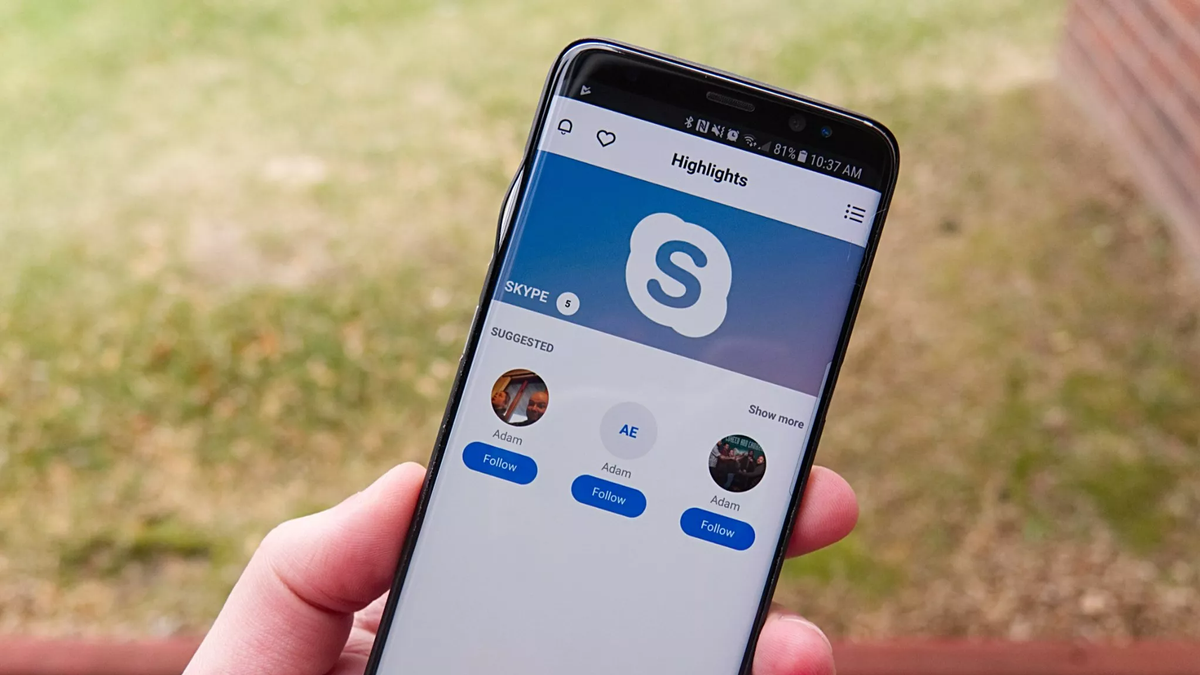A BBC investigation reveals that Microsoft is permanently banning Palestinians in the U.S. and other countries who use Skype to call relatives in Gaza.
Reportedly, Microsoft has been banning and wiping the accounts of users who have leveraged Skype to contact relatives in Gaza. In some cases, email accounts over a decade old have been locked, destroying access to banking accounts, OneDrive storage, and beyond.
United States resident Salah Elsadi lost his account of over 15 years in the dragnet. “I’ve had this Hotmail for 15 years. They banned me for no reason, saying I have violated their terms — what terms? Tell me. I’ve filled out about 50 forms and called them many many times.” Eiad Hametto from Saudi Arabia echoed the report, “We are civilians with no political background who just wanted to check on our families. They’ve suspended my email account that I’ve had for nearly 20 years. It was connected to all my work. They killed my life online.”
Many of the users affected by the bans expressed that Microsoft may be falsely labelling them as Hamas



The average person does not read or understands instructions of any kind related to PCs. This is something tech-savy people suck so hard at: having patience for those people. You expect them to be like you or a certain way that is not possible for them or simply won’t ever happen, and you get mad or blame them for it, instead of offering the solution they need, which is a more intuitive software design, be more direct with the information, explain things like they are beginners, not like they have used Linux before and know what even sudo is, stuff like that
I remember when I was first learning linux, I found this super evangelistic website explaining how totally easy it is to use linux nowadays (this was about 15 years ago, so that was a fucking lie).
They gave some basic task as the first example of something you might need to do, and they said, no shit, “It’s easy! Just open up the terminal and type…” and I closed the website.
Not because I couldn’t do that instruction, I was working in IT and I already maintained multiple linux servers, but because of how utterly unhinged that instruction was. I didn’t know if their information would be useful, but I did know that I couldn’t trust their judgement anymore. You cannot tell people an OS is “easy” and “for everyone” then transition straight into “open up the terminal” in the same goddamn breath. They didn’t even explain how to open up the terminal, because of course it’s different everywhere and they wanted universal instructions.
I really, really want to make linux work for me. I have four linux machines in my home, although three of them are raspberry pis, and i have tried it in laptops and on my main machine many times over the years, always finding it more trouble than it’s worth. But I have never seen any indication that the community has ever moved on from, “It’s easy! Just open up the terminal…”
Statements dreamed up by the utterly deranged.
You nailed it. We love to repeat that sentence, “it’s easy”, myself, wrongfully included. I do believe that lying to your brain that whatever you have to do is easy kind of makes you try harder and for longer, you break problems down and stuff, but not everyone is like this at all.
Whenever my dad calls me to ask about a problem in his PC, I always start energetic and happy to help him, with a good tone in my voice and everything. But I start losing my shit the longer the call lasts, because he doesn’t know anything, how to stop a process from the task manager, how to disable unnecessary startup programs, how to use a translator quickly in any website, etc. I become condescending because he likes to read me everything he sees on the screen first before clicking on the button I just told him to click on, everything, from top to bottom, every popup and warning. In windows. I always tell him that it’s easy, that it’d just take him maximum 1 week to learn, but still, he is always reluctant of it, he just wants to do his job, not learn about Windows or Linux at all
I’d lose my entire head if he tried Linux, because instead of buttons and intuitive icons it’d be a bunch of commands that even for me still look mayan most of the time. He’d easily fall for the sufo rm -r command if he followed a tutorial online, and that bothers me a lot. Linux is really not user-friendly as they think they are or claim to be yet, it seems like it’s getting closer, but the fact that a lot of it relies on using a terminal is already an instant-loss. I am sorry, but nobody wants to use the terminal, as cool as it might look while doing so or how gratifying it is to learn about it; the majority of people want speed without having to learn anything about how to achieve that speed
And before one of those deranged fools come here just to say “lol dude, your dad is just dumb” as a counter to all this, I’d say no dude, he is not, he is a goddamn fine architect, he just doesn’t need to learn the same crap that you and I have learned, we are a literal minority in this. He knows shit you don’t know, just as we know shit he doesn’t, and this applies to anyone of any age in this world, isn’t about age or whatever, it’s just about being interested in the topic, and not many are interested on a black box with weird-looking commands written in it, or how an OS works at all
Yeah, I think one of the issues is that a knowledge gap is a very hard thing to bridge. Part of that is the classic thing that “we don’t know how much we don’t know”. But there’s a similar thing with knowledge, where people don’t know how much they know.
Like with the terminal, once you get comfortable with it, it is really easy to get things done, but you really have to have a certain kind of disposition to get to that point, even with the right kind of help - like with your dad, if he’s not interested to learn you can’t make him. You have to already be deep into the ecosystem before you can say “it’s easy”, and by that point you are so far removed from the average user’s experience that you can’t understand why they can’t just do what you do. And unfortunately, the people most expert at using linux and therefore developing it are also the people deepest in the ecosystem.
There’s an empathy gap that’s hard to bridge, but it’s not impossible. Like if you’ve ever finished The Outer Wilds, it’s an incredible game that is only gated by your knowledge. It’s a unique experience that you can’t repeat. The only way to attempt to experience it again is to sit down and watch another person’s playthrough of it. I’ve done it multiple times, and each time is a unique and difficult experience, because you already know the answers, and they are so painfully simple once you know them. It’s a real struggle of empathy to actually be able to enjoy it.
You can do a similar thing with other freeform puzzle games like The Witness. It’s just that The Outer Wilds is unique in that it shows you in stark contrast how vast the gap is between knowing and not knowing, and you have to bridge that gap constantly in order to engage.
So that’s my ramble on that subject, but that’s what I think is happening. I think apart from people willing and able to bridge that gap, the solutions to this issue involve more resources dedicated to improving the ecosystem and making it friendlier, and also just more uptake making the system stronger and exposing its weak points as people learn it, making the empathy gap less of a problem. As we are, proprietary systems have sucked up all those resources and market share, which has starved open source. It’s a slow climb out of that hole but I have to believe that eventually there will be a critical tipping point.